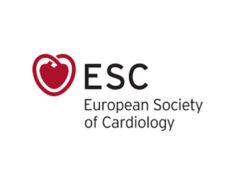
Recent years have seen many advances in education for cardiologists, but little attention has been paid to the impact of new technologies, particularly digital platforms and social networking. Digital education is evolving so rapidly that most patients, clinicians, and institutions have had little time to digest the changes. The 5th European Society of Cardiology (ESC) Education Conference, held at the European Heart House in Sophia Antipolis (France) in 2018, addressed the challenges and opportunities in training digital cardiologists. In this commentary, Xavier Rosselló and Dipak Kotecha look at the what the ESC is doing to embrace digital education.
The ESC is a not-for-profit professional organisation representing 57 countries, and the annual education conference brings together national directors of training with youth and patient representatives. The main outcomes of the conference have been summarised at https://doi.org/10.1093/eurheartj/ehy884, reflecting on six domains: social media, apps, online resources, remote assessment, educating patients and defining reliable information.
Major challenges identified in social media were the digital divide between younger and older professionals, and the inability to control some social media content. However, the highly interactive nature of these resources can facilitate scientific exchange of knowledge, and provide a broad dissemination of educational material.
Mobile applications are frequently used at a patient’s bedside (for example, to calculate risk scores) and for “on-the-job” education, though finding reliable content that is up-to-date can be tricky, and privacy and confidentiality present further difficulties. But, there is potential to develop multitasking apps for real-time collaboration to enhance professional discussions, and to produce patient-tailored content to enhance self-care and adherence to therapy.
The use of online resources, web-based education, and clinical case galleries is limited by time constraints, and by the difficulty of finding high quality content. This provides an opportunity for an agency such as the ESC to provide unbiased educational content (in contrast to industry supported learning), assist in continued e-learning, and promote “micro-learning” to improve basic skills.
Remote assessment is still developing in many countries across the ESC, and is hampered by a lack of homogeneous structured learning programmes across countries. However, there is now evidence of a greater acceptance of the need for curricula that can transcend national borders (https://doi.org/10.1093/eurheartj/ehy058).
Educating patients through digital means has many potential advantages—it can improve shared care approaches and make clinical practice more patient-centred. There is still much to be done in this field, and the ESC is moving swiftly forward with patient forums and committee representation, as well as specific projects in cardiovascular diseases, such as atrial fibrillation (https://doi.org/10.1093/europace/eux299).
Defining reliable information online can be problematic, and publication and industry biases add an extra layer of complexity specific to medical education. Better approaches are also needed to protect users, and to provide solutions to prevent or deal with online harassment.
The way we deliver and receive education is undergoing intense transformation. Though digital technologies have massive potential, they come at a price—there is a direct impact on patient care, and many challenges have to be faced for these tools to further improve medical education. A modern day cardiologist needs to be able to use digital tools for clinical practice, teaching and training, and interacting with patients. To promote digital cardiologists of the future, curricula and methods for training need to be adapted to reflect the expectations of the new digital era.
Xavier Rosselló is at the Centro Nacional de Investigaciones Cardiovasculares Carlos III, Complutense University of Madrid, Spain. Dipak Kotecha is at the Institute of Cardiovascular Sciences, College of Medical and Dental Sciences, University of Birmingham, UK








